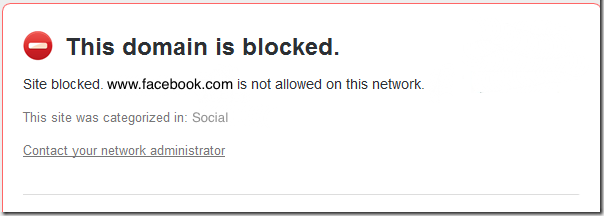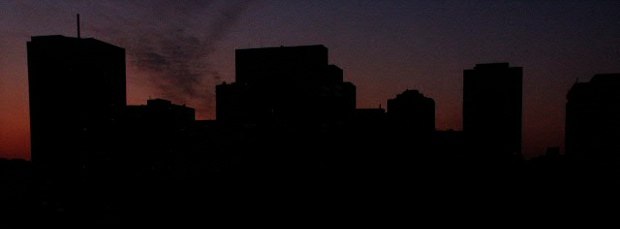
The Provost of Harrisburg University of Science and Technology, Eric Darr, has decided to perform what will certainly be an unpopular experiment on the students at his school. Following some chin-stroking related to the nature of social media and its relevance to etc. etc., Mr. Darr decided it would be interesting to block all use of social websites and applications on school networks for a full week.
The school is far from technophobic; in fact, like most modern universities, it is extremely well-wired, and a huge amount of collaboration and communication takes place online. So in addition to blocking Facebook, AIM, Twitter, and Myspace, HUST will also be blocking its internal networks and tools. There’s a lot to like about this experiment, and a lot to discuss.
First of all, the experiment is doomed to failure from the beginning, in a way; the Provost surely recognizes that much of the social web is accessible via smartphone, and text messages have largely replaced instant messenger applications (although within dorms, they are still well-used) for quick communication. But by eliminating the convenient built-in network for these types of social applications, students and faculty still might flail a bit before finding the path of next-least resistance for their social urges. In the post-mortem, it will provide interesting data to hear, for example, which people and groups ended up relying on phones, which actually walked down the hall, and which tried to avoid the whole mess by working from home.
The next idea that occurs to one is how one would go about blocking all social access. It seems to me this isn’t really even possible except by eliminating internet access altogether. A system-wide shutdown of all wired and wireless communications within a modern university — now wouldn’t that be a sight?
I imagine you’d have to talk to carriers, OK things with the neighborhood and city officials, and so on. More trouble than it’s worth, probably. Better to just wait for a blackout and go around taking notes. Note to Google, Facebook and analytics companies: pay close attention to usage after forced absences like disasters and long outages and forward the results to me and Eric Darr.

As a thought experiment, being suddenly deprived of one’s social media tools has a whole range of responses. Some, like me, wouldn’t feel the heat at all. Some enjoy and thrive in it, and have legitimately moved part of their social life onto it — not just heavy Twitter users, but think of serious MMO players, who may spend more time with their clanmates than with their “real” friends (no judgment). Or simply people who rely on technology to keep in touch with distant family and friends.
It’s not always what one expects, though. Think of the poor benighted social media butterflies the world over who have found to their horror that their mobile tweets haven’t been propagating correctly, or their RSS feed has been down, and (as happened recently) no one noticed on either side.
The only way to know for sure what the places of social media and other forms of instant sharing are in our lives is to remove them, and measure the gap. Unfortunately, I doubt we’ll be treated to a day without a Google any time soon, and let’s be honest, who among us has the guts to cut the cord, as Paul did? As usual, it will take more than curiosity to part us from our toys — good thing for us that there are (as usual) test subjects a-plenty in the form of undergraduates (side note: I’ve heard Psychology referred to as “the study of undergraduates” because of a huge proportion of knowledge in that field is derived from that population). I look forward to hearing about the results of Darr’s experiment soon.